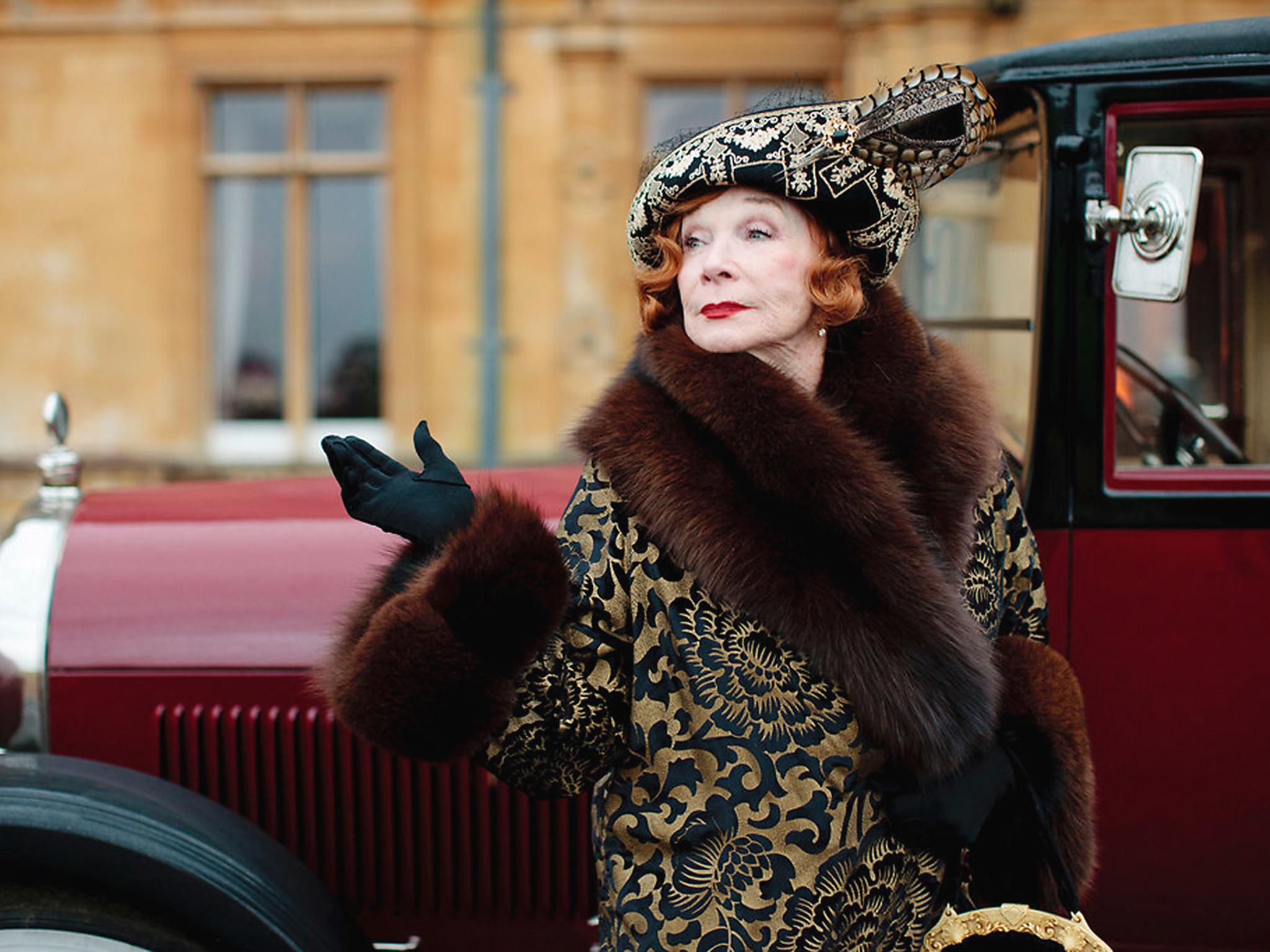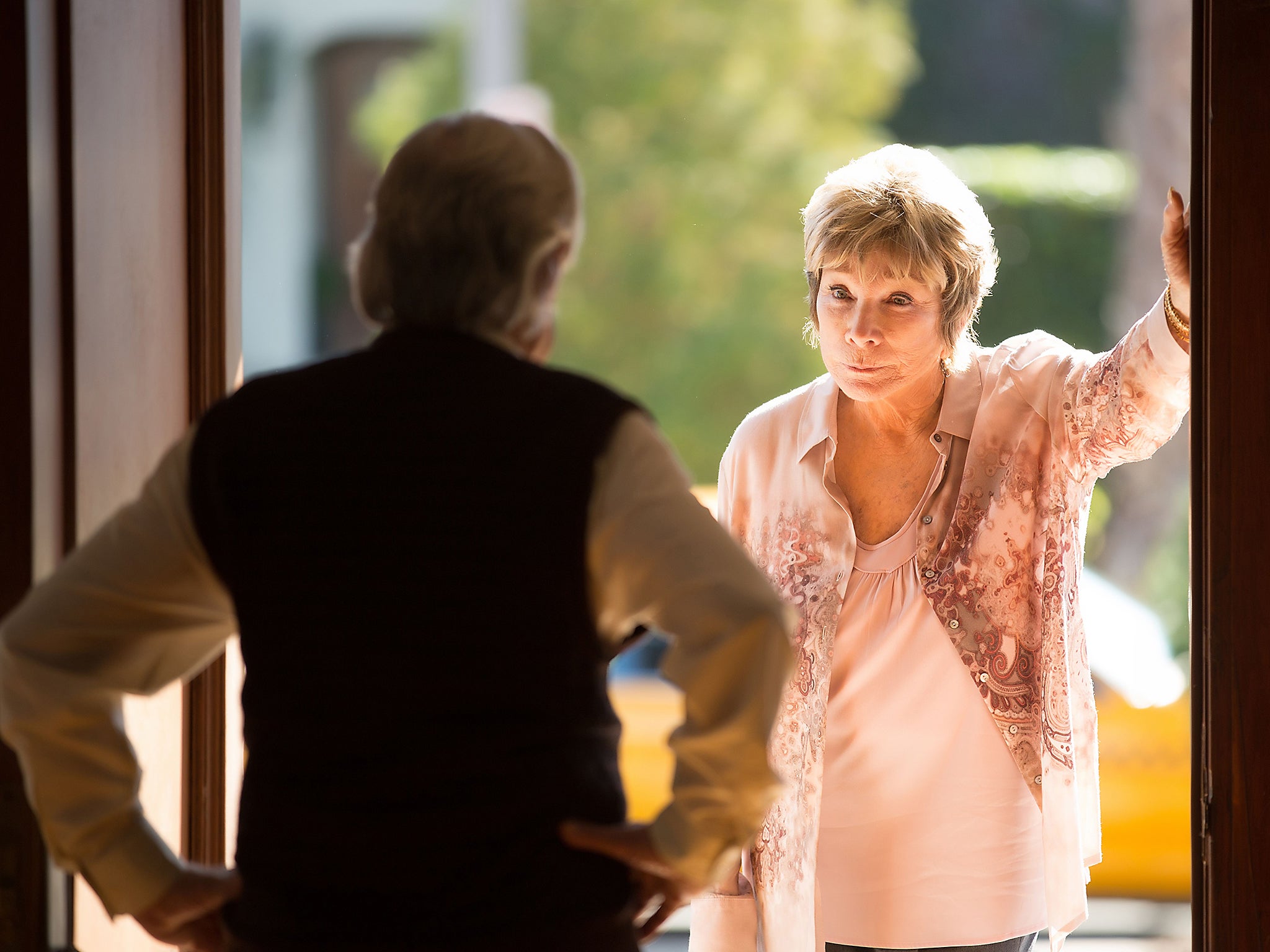Shirley MacLaine has become a classic, but she's not done with her career yet
Shirley MacLaine sits down for a raw view of her life and work

Your support helps us to tell the story
From reproductive rights to climate change to Big Tech, The Independent is on the ground when the story is developing. Whether it's investigating the financials of Elon Musk's pro-Trump PAC or producing our latest documentary, 'The A Word', which shines a light on the American women fighting for reproductive rights, we know how important it is to parse out the facts from the messaging.
At such a critical moment in US history, we need reporters on the ground. Your donation allows us to keep sending journalists to speak to both sides of the story.
The Independent is trusted by Americans across the entire political spectrum. And unlike many other quality news outlets, we choose not to lock Americans out of our reporting and analysis with paywalls. We believe quality journalism should be available to everyone, paid for by those who can afford it.
Your support makes all the difference.“Have the cocotini; it’s loaded with calories,” Shirley MacLaine urged pleasantly. She would be having nothing more lethal herself than a decaf cappuccino spiked with raw sugar. She had settled the other day into her favourite banquette high atop Geoffrey’s Malibu, the terraced seaside restaurant that doubles as her home away from home.
She has been a regular here since the late 1950s, when the space and its then-adjacent hotel were known as Holiday House, a hideaway for MacLaine, her Rat Pack pals – Frank Sinatra, Dean Martin and Sammy Davis Jr – and visiting dignitaries from the Kennedy clan.
At 82, MacLaine had the past on her mind.
“Whatever little affair I was having, or not having, I used to come here,” she said. “That was why people came to Malibu: to have an affair.”
On this gusty afternoon, MacLaine was all mischief, a weathered, wised-up variation on the carrot-topped gamine who sang, shimmied and emoted her way into peoples’ imaginations many decades ago. She also remains an outspoken champion of progressive causes and, in the view of some, an endearingly credulous kook: the same who raised eyebrows and risked derailing her career with her 1983 book Out on a Limb, a rumination on life and afterlife, alien visitors and the migratory properties of the human soul.
A 60-year veteran of film and television, MacLaine first captivated audiences as a winsome elevator operator in the 1960 film The Apartment; touched hearts in The Turning Point, about an emotional rivalry in the world of ballet; won an Oscar for Terms of Endearment, the 1983 chronicle of a spiky mother-daughter relationship; and resurfaced more recently on Downton Abbey as a waspish, disconcertingly progressive American dowager, a role that reignited her career.

As she might say herself, MacLaine, it seems, is in the ether again. She materialised at the Oscars in February as a presenter, acknowledging a standing ovation with the appealingly self-mocking line: “That’s the nicest reception I’ve had in 250,000 years.”
In Malibu, where she lives when not at her ranch near Santa Fe, New Mexico, she talked up The Last Word, her latest film, about an insufferably self-involved, small-town grande dame intent on burnishing her legacy by dictating the terms of her obituary. The film opened this month to stinging reviews, though MacLaine was praised. She “holds the screen effortlessly”, wrote Manohla Dargis of The New York Times.
MacLaine is just as happy holding attention as a raconteur, a walking compendium of Hollywood lore. Leaning in conspiratorially, she returned to those long-ago evenings at Holiday House, where the Golden Age gossip moguls Hedda Hopper and Louella Parsons were habitués. “Some of us who came for dinner knew that there were microphones hidden under the tables,” she recalled, “so we came as other people, real people, people who’d pulled stuff, people we didn’t like.”
She chortled. “We pretended we were whoever we wanted to be,” she said, “and whoever was listening to the microphone, that’s what they would print.”
With that she turned earnest, displaying her penchant for habitual self-searching, a lifelong quest for the identity that still seems to elude her.
“Tell me, what’s your opinion of me?” she asked, unabashed, before offering a theory of her own. “I have an orphan psychology, that’s what I’ve been told,” she said. “See, my parents were always busy, so when I was about 11, I had to get up early to get off to school by myself and then to ballet class. I was the one navigating the buses and streetcars. I had no one to talk to, because by the time I got home my parents were in bed.
“So to navigate those waters, just to make it home each day, I had to keep asking myself, ‘Who am I?’”
This led MacLaine to take up dance, a discipline that required her to subjugate her will to that of the company. “I was in the chorus a long time,” she said, “and in the chorus you don’t do things to stand out, you do things to keep your job. That’s the way I think, and that’s why I’m still working.”
That and, perhaps, her sensitivity to a bevy of “past lives” to draw upon for character roles and romantic leads. “I used to get a lot of teasing about the metaphysics,” MacLaine acknowledged. “But lately it’s stopped. People are beginning to have past-life memories of their own. I guess a lot of them have come to realise that what I did with Out on a Limb was make it OK to talk about these things in public.”
There was a pause. “What isn’t OK yet to talk about,” she murmured, “is extraterrestrials.”
She moved briskly to other, more mundane memories, like how she had a face-lift at 50 and was instructed to keep her features immobile for a time.
“Instead I had a love affair, and an orgasm,” she recalled with a hoot.
Though perfectly willing to try out her candour on a reporter, she feels no apparent need to engage with social media. “All that going on Twitter and going on Instagram half-dressed, to me that’s sexual self-exploitation,” MacLaine said. “Let us discover who you are – yeah, that’s good.”
As for her resurgent popularity, “If I’m click-worthy,” she said, “that’s because I’m still walking upright.”
What has kept her relevant is a boundless curiosity about the world. “That hasn’t changed,” MacLaine said. “It may have gotten stronger as I’ve gotten older.”
Curiosity drove her to take on the role of the genial dance hall girl Charity Hope Valentine in the movie version of Sweet Charity, and it prompted her to drop any remnant of personal vanity as Aurora Greenway, the blowsy Southern belle and uptight helicopter-mom to Debra Winger’s rebellious character in Terms of Endearment.
Her roles do often intersect with her off-screen persona, MacLaine allowed. Which makes it awfully tempting to draw parallels between the actress and the icily controlling Harriet Lauler, a retired advertising executive long estranged from her daughter in The Last Word.
“He wrote the part for me,” she said of Stuart Ross Fink, the screenwriter, who seemed to have mined chunks of MacLaine’s personal history for the script, not least her strained relationship with her daughter, Sachi Parker.
Parker wrote about her formative years in Lucky Me, a caustic 2013 memoir about the alternately controlling and negligent mother who shipped her off as a child to live with her father in Japan and later welcomed her back, as Parker wrote, only to sabotage her incipient acting career.
“The story’s not relatable,” MacLaine said brusquely about the film. But a certain amount of speculation was inevitable. “I thought, ‘My God, will somebody think it’s about us?’” she said, adding, a bit uncharitably, “Thank God, not that many people read it.”
She was distracted by a passing young woman in shredded jeans. “You know how much it costs to rip ‘em up that way?” she said. She prefers less mannered, more classic dress, like the tangerine V-neck sweater she was wearing with tailored pants and sneakers.
Sure, she once played the indomitable Mademoiselle Chanel in a television drama, but off-screen, she said, “I’m not into gourmet dressing; who has the time to keep up that facade?” Her major concession to style: “I match my sweater to my shoes.”

Apart from browsing catalogues, she doesn’t shop much. “I’ve got enough clothes in my closet for 13 lifetimes,” she said. For her appearance at the Oscars, she pulled from her wardrobe “black sequined slacks from one of my Vegas shows, a top from some movie – I’ve forgotten which one – and a turtleneck from Chico’s. Oh, and what do you call those summer shoes? Espadrilles. Thank goodness the slacks were long enough to cover them up.”
She showed off her rings, the stacked Victorian snakes that she wears like twin talismans. She was reluctant though to talk about their provenance. “That’s a secret,” she said.
For all her outspokenness, there are things MacLaine insists on keeping to herself. High on that list is her sometimes rocky relationship with her younger brother, Warren Beatty, who caused her consternation at the Oscars.
For those few who missed the moment: Beatty flubbed his turn as a presenter, staring dazedly at the envelope announcing best picture and passing it to Faye Dunaway, leaving her to announce the wrong winner.
What was that about? “Don’t,” MacLaine warned, waving off the question.
She has since gone public: “I think we’re all processing the horror of it,” she told USA Today. “I’m still dealing with it.”
She is far more forthcoming, even downright analytical about her love life, having catalogued affairs with, among others, Prime Minister Olof Palme of Sweden, the New York newspaperman and novelist Pete Hamill, the French heartthrob Yves Montand and the brooding movie idol Robert Mitchum.
Her Rat Pack associates, Sinatra and Martin, intrigued her, she has confided in the past. As for romance: never happened, she said the other day. “They weren’t my type.”
“I like complicated men; that was certainly Mitchum,” MacLaine went on. “It gave me something to do to try to figure them out. I wanted to see how they would lead if they had power.”
That enthrallment with power extends these days to President Donald Trump. “The reactions to him are so vile,” she said, “that you have to ask yourself, ‘Why do I hate him so much?’”
She offered her own somewhat circumspect assessment. “The stage is a sacred place,” she said. “When you occupy that sacred place as a leader but act as though you’re in show business, that can be extremely disturbing.”
She hinted that she had dirt about the president.
“You’re going to want what I’ve got, it’s that good,” she teased. There was another pause.
Then, “Nope, I’m not going to say it.”
Exhaling mightily, MacLaine added, “Thank God, I’ve gotten that wise.”
© The New York Times
Join our commenting forum
Join thought-provoking conversations, follow other Independent readers and see their replies
Comments